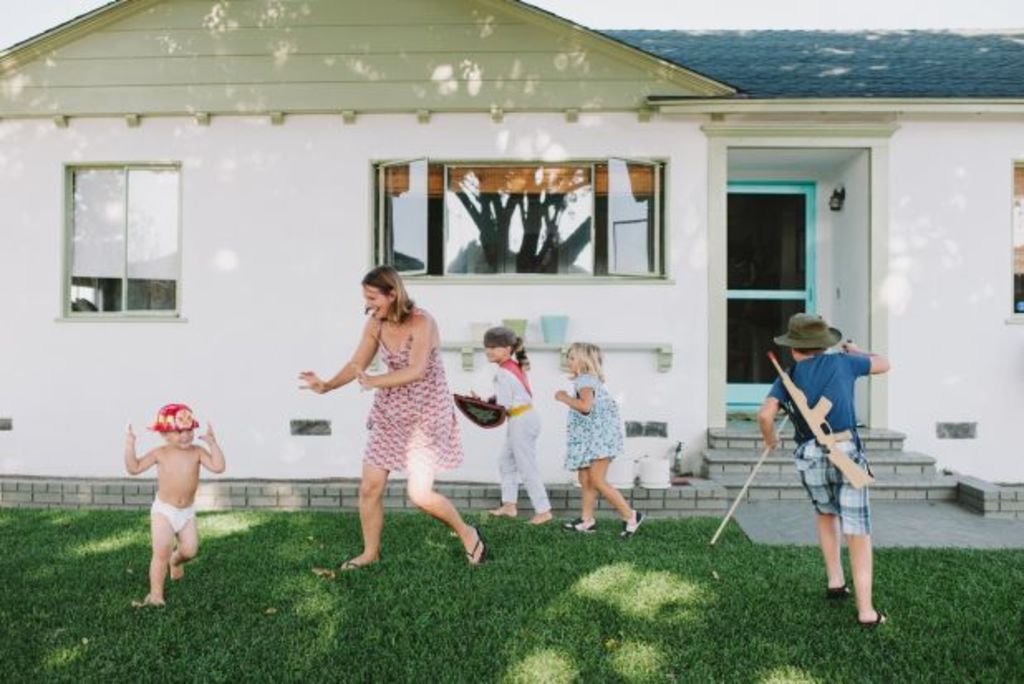Why the increasing trend of boomerang children worries me

As a mum to a seven and two-year-old, the day that my children move out of home is a lifetime away. However, when my children do move out, it may not be permanent. The boomerang trend is on the rise.
A new study by the London School of Economics found that after decades of raising independent children wanting to leave home, the trend is now shifting. Children are being forced back to the family home by numerous factors.
Study author, Professor Emily Grundy of the London School of Economics and Essex University explained, “Over the past half century, intergenerational co-residence has declined dramatically in Western countries. However, this pattern has recently altered, and in some countries multi-generational co-residence has increased; a shift interpreted as a family response to high unemployment rates, poor job prospects and financial hardship among young adults.”
The repercussions of this shift are negatively impacting parents. In the study, parents rated a decline in their quality of life by the return of their children.
“When children leave the parental home, marital relationships improve and parents find a new equilibrium,” said study co-author Dr Marco Tosi. “They enjoy this stage in life, finding new hobbies and activities. When adult children move back, it is a violation of that equilibrium.”
This stage of life is a long time away for me, but I empathise with these parents.
As a couple, most of our arguments relate to the raising of our children. We’re always facing new challenges and it’s sometimes hard to find common ground to resolve them.
- Related: Why empty nests don’t stay empty for long
- Related: What to expect when you downsize
- Related: Aussie parents fear their children will never move out
 When children leave home parents find a new equilibrium. Photo: Stocksy
When children leave home parents find a new equilibrium. Photo: Stocksy
Imagine having that stress relieved when they leave home, only to have them return. Just when you think your days of providing guidance, support and patience under one roof are over, it starts again. Only this time there are different challenges.
Melissa Neve is a couples’ therapist and relationships counsellor. She tells me that if your children return home, clear boundaries must be set on both sides.
“Children usually sink back into the old way of life when returning home, and this can be problematic without boundaries,” says Neve. “Some parents may be too intrusive or have unreal expectations. Some children might have the attitude of ‘your house, your problem’.”
Neve advises that a child returning home should be viewed like a share house arrangement, where adults live with other adults. Boundaries should encourage autonomy and responsibility.
Think about it like this, if any other adult were coming to live with us, what would we expect? What would we allow? How would we approach this? What is reasonable for us and for them?
“Establish how long your children plan to stay. Talk about money and financial contributions, as well as non-financial contributions to the household, such as division of chores,” says Neve. “For guidance, talk to other parents who have had the same experience.”
Neve adds that if you’re feeling any guilt, fear, anxiety or marriage issues, you should seek help.
“Don’t entertain the thought that you’re deficient, bad, or mean if this isn’t working for you,” she says. “You’re normal and, after umpteen years of parenting, you deserve some time to kick back and enjoy without responsibility for anyone else.”
I love this advice and am taking it in on board for the future. I don’t want to wish time away with my sons, but I want them to fly the nest when they’re ready, and preferably not return.
I want to enjoy some peace. I want to travel and enjoy more disposable income. I want a tidy house with a full pantry and I want a bathroom that doesn’t smell of wee. After years of parenting, I want to be selfish and think about only me. I think that’s fair enough.
We recommend
We thought you might like
States
Capital Cities
Capital Cities - Rentals
Popular Areas
Allhomes
More







